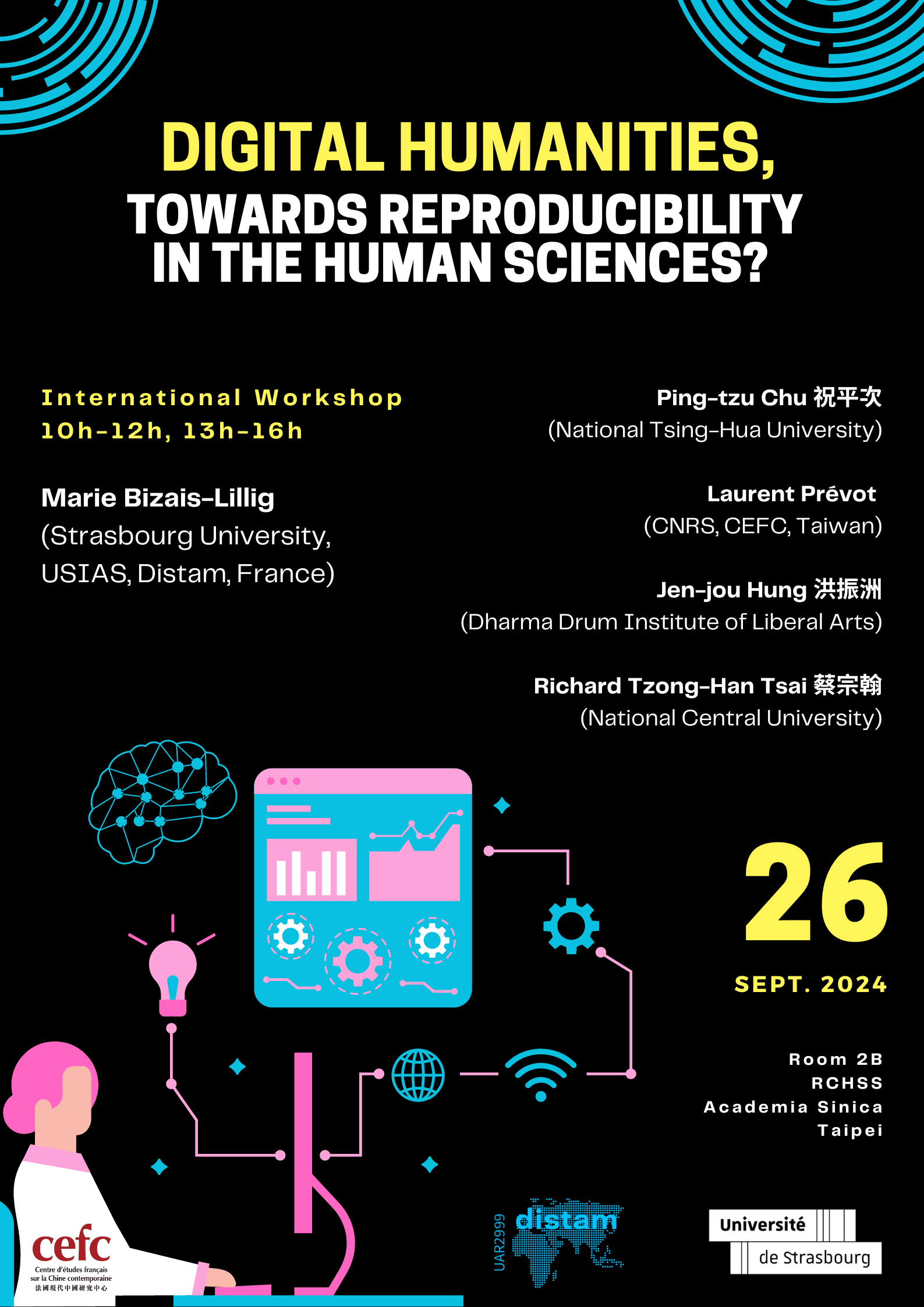On the invitation of the French Centre for Research on Contemporary China 法國現代中國研究中心(CEFC) Taipei Office:
Chinese studies has slowly taken a digital turn in the West for two decades now, while Taiwan, the Academia Sinica in particular, stands as a pioneer in this field, even before unicode revolutionized the possibilities for publishing, documenting, disseminating and exploring corpora in Chinese languages in 2005. A computational approach to large corpora in disciplines such as linguistics, history, literature and sociology has modified the investigation process, making it possible to bring together information that was previously disjointed, and providing new ways of representing phenomena – e.g. network analysis.Above all, methodological transformations have brought about a paradigm shift, with the idea that a case study was an illustration whose exemplarity could only be demonstrated if it could be substantiated quantitatively, or the principle that arguments should be retrievable and reconstructed by the readers of an argument. In other words, with algorithmic foundations, the use of computer tools to identify relevant data for a demonstration has given rise to the principle of reproducibility (or replicability) in the human and social sciences. However, the interest aroused by artificial intelligence (AI) in a computational approach to corpora (written, oral, images, for example), whether for transcribing, annotating, documenting, exploring or analyzing, poses a real challenge to maintaining this principle of reproducibility.
The workshop organized on Thursday, September 26th at Academia Sinica in Taipei and hosted by the CEFC (French Center for the Study of Contemporary China) will aim to articulate an editorial project based on the following series of questions:
- Why defend the principle of reproducibility in the human sciences?
- Is this principle firmly rooted in Chinese and Taiwanese studies?
- What impact has AI had on our disciplines?
- To what extent and in what contexts is reproducibility favored?
- What qualities in methods still challenge this principle?
Participants:
Marie Bizais-Lillig (Strasbourg University, USIAS, Distam, France)
Ping-tzu Chu 祝平次 (National Tsing-Hua University)
Laurent Prévot (CNRS, CEFC, Taiwan)
Jen-jou Hung 洪振洲 (Dharma Drum Institute of Liberal Arts)
Richard Tzong-Han Tsai 蔡宗翰 (National Central University)


